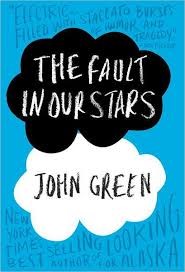
Dissemination
The fault in our stars - Methodology
Written by Super UserTitle of Activity
The Fault in Our Stars
Description of educational activity
Duration: 45 minutes
Pupils' age: 15-18
Classroom organization: group work (6 x 4 students)
Objective: to improve the student's reading literacy and ability to understand text, ability to reflect, critical thinking and empathy. It also aims at developing key competencies and transversal skills (critical thinking, taking initiatives, solving problems, participating in collective work ...) that enable students to critically observe and decode the cultural, social use of languages; cultivating reading culture by creating a readily motivating environment that improves personal reading quality. Enhancement of communication skills, interpretation, analysis and evaluation skills.
Working materials: summary handouts
Activiites:
- Ss are divided in 6 groups.
- They are given handouts with 6 jumbled paragraphs of the summary to put them in chronological order.
- In the last two paragraphs the names of the main characters, Hazel and Augustus, have been deleted so the Ss will have to finish the story as they see it, filling the gapfills with the names.
- Once when they have the paragraphs ordered and the plot with their ending ready, they will have to imagine the dialogue between the characters for each of the paragraphs.
They are given the quotes reffering to different characters.
- The Ss will present the novel with their ending in the way that one S takes part of the narrator and other Ss act out the dialogues
Handouts:
- Hazel Grace Lancaster is trying to live the normal life of a 16-year-old girl, but she is also struggling with what it will be like for her parents after she dies. While Hazel attends a church support group for cancer survivors, she meets a boy that is one year older than her, Augustus Waters. While Augustus had a type of cancer that causes him to lose his leg and wear a prosthetic, it also has a survival rate that is much higher than Hazel's death sentence.
- From the first day that Hazel meets Augustus, the two are practically inseparable. Augustus has been in remission after losing his leg some years ago, so Hazel hesitates in starting a relationship with him, not wanting to hurt him if her illness takes another turn for the worse The basis of their relationship ends up being Hazel's favorite book, „ An Imperial Affliction". She requires Augustus to read it and in turn, he requires her to read the book that is the basis of his favorite video game.
- Hazel relates to the character in her favorite book, Anna, because Anna has a rare blood cancer. Augustus and Hazel bond over the book because both of them of a burning desire to find out how the story ends because the author stops the book before providing conclusion on what happens to each of the characters.
- Augustus joins Hazel's pursuit of the book's author, Peter Van Houten, to provide the answers that they need. Augustus even uses a wish foundation to fly him and Hazel to Amsterdam, where the author lives, to talk with him in person. They are able to take this trip, but when they arrive to meet the author he is drunk and surly.
- While ___________ is the one that is doomed to die, __________ ends up telling ____________ that at the recent scan, the doctors discovered that ______ (her/his) entire body is filled with cancer. _______ spends the last months of ________'s life caring for ______(her/him) and loving _____(him/her).
- The author attends _________'s funeral and tries to apologize to ___________; he reveals that his book, which is about a young girl with cancer, was based on his daughter who died of leukemia . ___________copes with ____________'s death, comforting ________ (himself/herself) with the strength of ______ (her/his) family and a letter about ______ (him/her) that _________ sent to the author before _______(her/his) death.
Evaluation and assessment method:
Students independently demonstrate and fully substantiate their attitudes and results in the course of their work.
The impact of RSP reading activities:
Practices that support and encourage students’ choice, opinion and attitude. The idea and the choice are personal and there is no mistake, and the positive understanding of thinking and thinking affects the students' confidence and lose previous reading resistance and gradually gain readership competence.
Connection to curriculum
Stage: 3rd grade of high school
General grammar school programme: The aim of the curriculum for the study of literature and the areas of civic education is related to the reading and understanding of more literary texts on interpersonal relationships and differences between healthy and severely ill people.
Pupils should independently discern, isolate, explain, demonstrate the features of the text offered and argue their outlook on the influence of culture, family and society on the development of the personality of a young man suffering from terminal illness and his rights to daily life of a young person regardless of illness.
Knowledge:
- Autonomously access text from different perspectives.
- Learn to initiate a discussion and ask questions.
- Develop ease and readiness of reading.
- Enhance the understanding of reading comprehension.
- Organize and suspend different types of information.
Skills:
- Observe, counteract, distinguish, and comment on the similarities and differences in appearance in the text.
- Develop the prediction skills and ability to imagine possible situational solutions.
- Develop and enrich Communication Skills.
- Construct, conclude and evaluate.
- Learn to work effectively, independently and equally in the group.
Competence:
- Establish links between the world in text and real life or personal experiences.
- Be able to visualize, combine, intervene in material.
- Follow the instructions and tasks to be able to evaluate the results.
- Evaluate evidence and arguments, support and justify choices.
Bibliographic reference to be used during the activity
John Green
The Fault in Our Stars

Digital sources
- https://en.wikipedia.org/wiki/The_Fault_in_Our_Stars
- http://www.johngreenbooks.com/the-fault-in-our-stars
- http://www.bookrags.com/studyguide-the-fault-in-our-stars/themes.html#gsc.tab=0
- https://www.readingsanctuary.com/the-fault-in-our-stars-download-pdf/
- https://www.theguardian.com/books/2013/nov/17/review-fault-in-our-stars-john-green
- https://www.youtube.com/watch?v=ZSuhXAuhb3Q
- http://www.sparknotes.com/lit/the-fault-in-our-stars/themes.html
Results
Expected Outcomes:
- Students acquire the lifelong ability of reading, interpreting and evaluating a literary text with the theme of life's disadvantages of severely ill people;
- the ability to develop an understanding of literal and implicit meaning, irony and sarcasm, relevant contexts, and deeper issues and attitudes expressed in literary works;
- a competent personal response to the subject of the literary work they have studied;
- solving different tasks from different perspectives; the research of broader and universal questions suggested through the literary work;
- a conscious grasp of life's realities and everyday faces with hard-sick young people, developed empathy and a better understanding of themselves and the world around them.
Recommendations
Choosing a method of teaching and a suitable text affect the increase of the student's interest in reading, studying the interpretation.
Independence in work, effective co-operation, involvement in discussion and appraisal encourage interests and develop analytical and synthetic skills.
The volume of texts can be tailored to the opportunities and interests of the group as needed, according to the RSP readership profile.
The more active approach and the smaller text fragments offer a more interesting, dynamic way of reading and studying a literary work.
Contact
X gimnazija ''Ivan Supek''
Ul. Vjekoslava Klaića 7
10000
Zagreb
E-mail: partners@handbook4rspreaders.org











